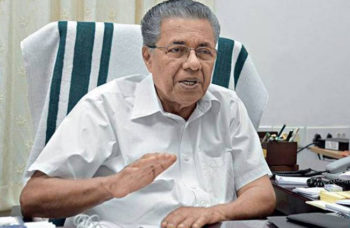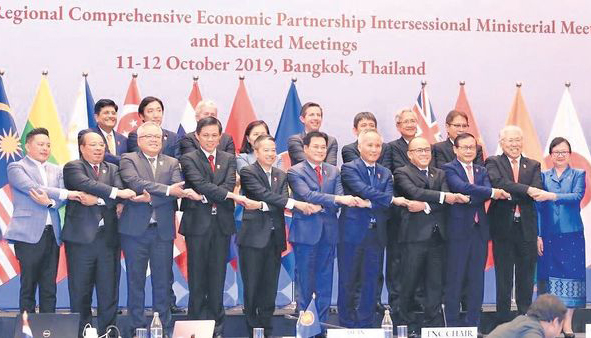The protest against the Regional Comprehensive Economic Partnership (RCEP) has steadily been growing as 22 October (today) has been fixed as the last date for closing negotiations including bilateral ones. And the final meeting of the negotiators of 16 nations would be taking place on 1st of November.
Meanwhile, the rank of those opposed to the talks has swelled with Kerala Chief Minister joining the bandwagon of farmers and dairy women. He has called for withdrawing from the RCEP negotiations.
In a tweet Pinarayi Vijayan said “The Union Govt must withdraw from the RCEP trade deal. It is not in the interest of the country or its people. No RCEP, because the deal would wreck the agriculture sector, which is the mainstay of many. It is also alarming that there has not been enough discussion on it.”
Supporting him image Guru Dilip Cherian tweets “This body blow can still be averted! Surely RCEP is not a done deal yet…Can we avoid it totally? “.
In the Bangkok meeting on 11-12 October which was supposed to be the last meeting as it was attended by the ministers of respective countries including Piyush Goyal from India, a few issues raked by India including market access, investment and e-commerce, could not find a solution.
In the light of 1st November meeting social media is flooded with hashtag “#norcep” for India which Piyush or Prime Minister Narendra Modi can ill-afford to ignore.
“Much worst days are ahead with India signing #RCEP. Farmers across country should raise voice against India signing RCEP which will affect Malenadu (Arecanut, Coffee, pepper farmers, sugarcane growers & dairy farmers”, writes an activist.


Yet another one writes “New Zealand says it will export “only” 5% of its dairy to India under #RCEP, but why should India lose ANY market to NZ when it is already self-sufficient and its local production supports marginal farmers?”.
Gaurie Dwivedi writes in Sunday GuardianLive “RCEP is a China spearheaded initiative. China now has excess capacity and with a trade war with US, it will need to identify newer markets to “dump” its products.”
Dwivedi further writes India’s own experience with FTAs has been far from satisfactory. India signed an FTA with ASEAN and Japan and South Korea in 2010; and had a trade deficit with these countries to the tune of $15.5 billion, which has risen to $42 billion in 2019. What is disturbing is that in nine years, India’s exports have continued to stagnate at 14% of the total trade and imports have risen sharply, hurting Indian interests.
Trade minister Piyush Goyal who returned from Bangkok, meanwhile tweeted “Had a productive engagement with all partner countries at the 9th RCEP Ministerial Meeting in Bangkok. Participated in deliberations to promote trade & investment to achieve mutual economic growth, while safeguarding the interest of our domestic industry and farmers.”




















































